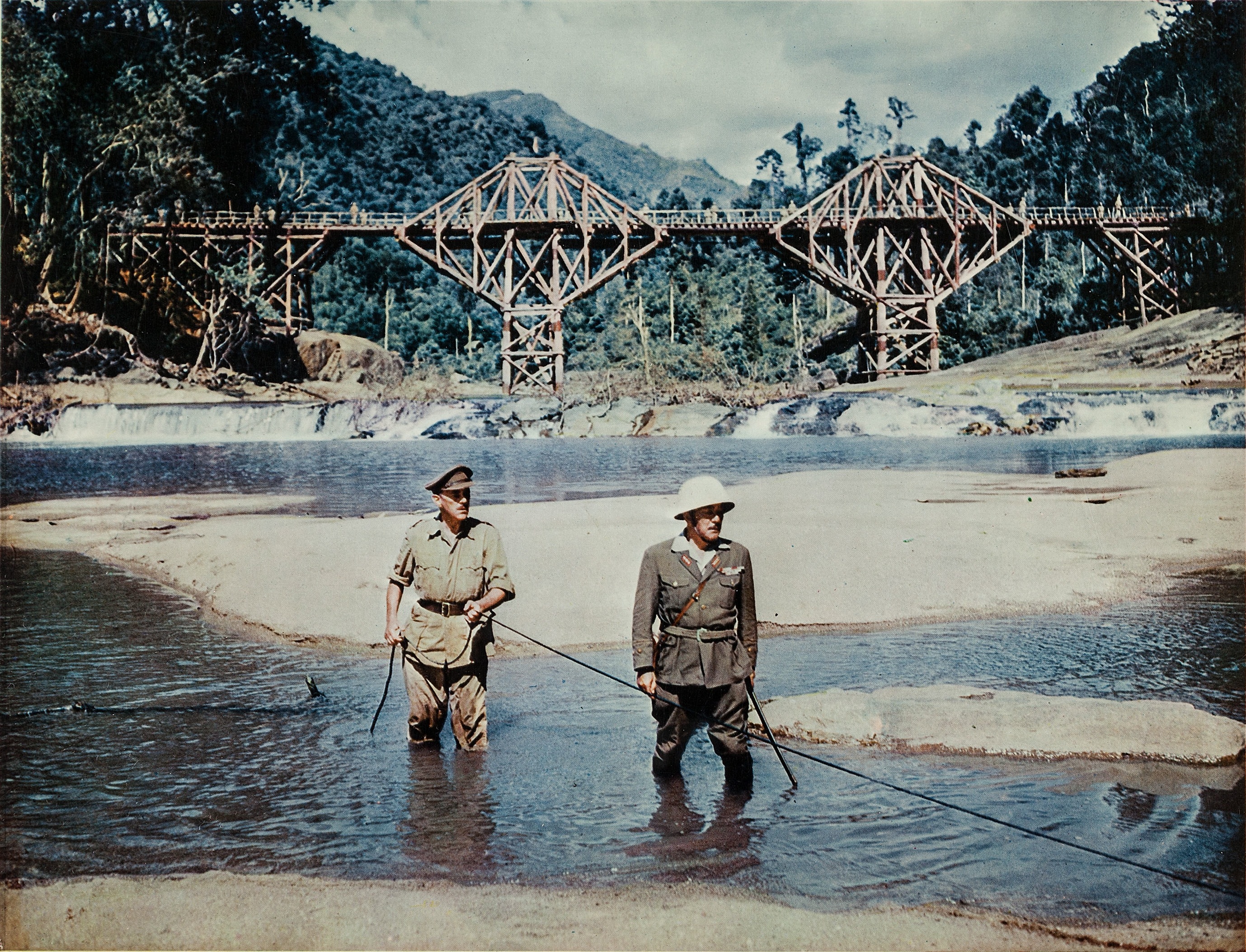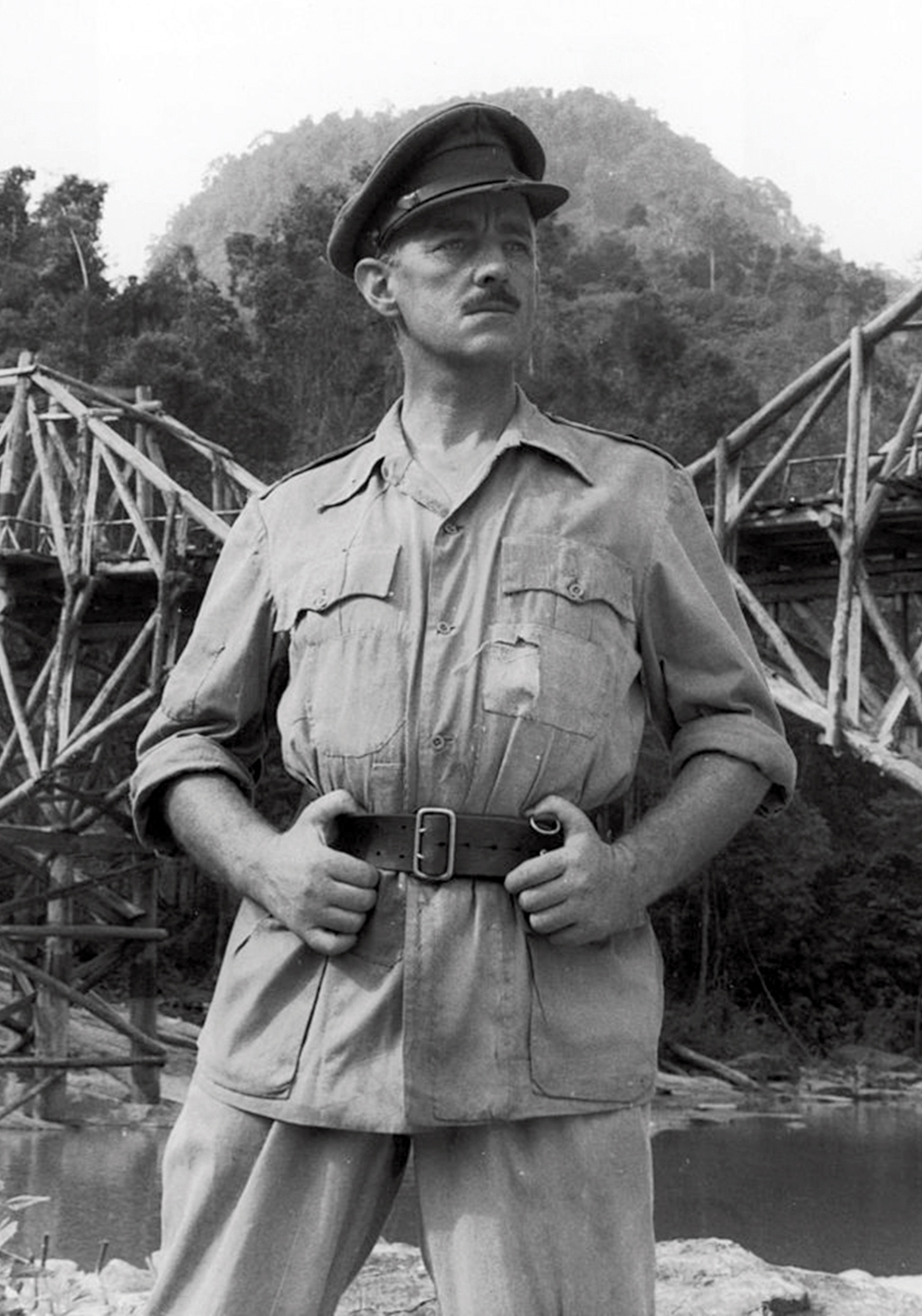Bridge on the River Kwai, The, ranks among the greatest war films in motion-picture history. It was released in 1957 and immediately became one of the most popular and honored motion pictures ever made. It received seven Academy Awards, including the award for best picture. David Lean won the Oscar as best director, and Alec Guinness won as best actor. The film was adapted from a 1952 novel by French author Pierre Boulle, which was based on actual events during World War II (1939-1945). Boulle won an Academy Award for the screenplay, although he had written only the novel. The two authors of the screenplay were Carl Foreman and Michael Wilson, who were suspected of having Communist ties and therefore not allowed to work in Hollywood. In 1984, the Academy of Motion Picture Arts and Sciences added Foreman and Wilson’s names to the award.

The film’s action takes place in 1943. The Japanese force British prisoners of war to build a railway bridge over the River Kwai that would connect Bangkok, Thailand, to Rangoon, Burma (now Yangon, Myanmar). The picture was actually filmed in Ceylon (now Sri Lanka). The story begins as a battle of wills between the brutal Japanese prison camp commander and the commander of the British prisoners. Eventually, the British commander agrees to cooperate in building the bridge and becomes obsessed with its construction. Meanwhile, a squad of British-led commandos has been assigned to destroy the strategically important bridge.
The climax of the film comes when the commandos reach the bridge. The British commander tries to block their attempts to destroy the work that has consumed him. The bridge is finally blown up, and most of the major characters are killed.

The Bridge on the River Kwai has been praised as a superior spectacle, and also for its antiwar message. The conflict between the Japanese and British commanders and the destruction of the bridge suggest the futility and insanity of war.
The motion picture featured an all-star international cast. English actor Guinness played the British commander. Japanese silent film star Sessue Hayakawa made a movie comeback as the Japanese camp commander. The commandos included English actor Jack Hawkins and American movie star William Holden. The movie’s theme song, “Colonel Bogey March,” became popular. It had been composed in 1914 by Frederick J. Ricketts, a bandmaster in the British Royal Marines.
See also Guinness, Alec ; Lean, David .
